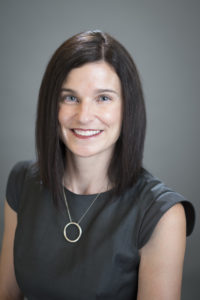 Dr. Kelly O’Brien has dedicated her career to helping people living with HIV – particularly those living with disability as they age.
Dr. Kelly O’Brien has dedicated her career to helping people living with HIV – particularly those living with disability as they age.
But the University of Toronto researcher, who was recently awarded the CAHR-CANFAR Excellence in Research Award in the Epidemiology and Public Health Stream, says she has numerous mentors to thank for her success over the last 17 years.
“I was honoured to be nominated by peers who are incredibly supportive colleagues and mentors doing outstanding work in the in the field,” says Dr. O’Brien, who is an Associate Professor and Canada Research Chair (CRC) in Episodic Disability and Rehabilitation in the Department of Physical Therapy at University of Toronto. “When I heard about the award, I was humbled to be recognized among such an incredible group of scientists who represent excellence in HIV research.”
As a rehabilitation professional working in HIV, Dr. O’Brien got her start as a physiotherapy student at the University of Toronto. In her final clinical internship, she worked with Dr. Stephanie Nixon, a physiotherapist on the General Medicine and HIV Team at the Wellesley Hospital in Toronto.
In this role, she was inspired to work with people living with HIV.
“It was during this clinical internship that I learned about the role for rehabilitation in HIV spanning musculoskeletal, cardiorespiratory and neurological domains, and the importance of environmental and personal contextual factors that can influence disability,” says Dr. O’Brien. “I was struck by the person-centred, collaborative and interdisciplinary approach by the health care team and I was hooked.”
When she graduated, she was hired as a physiotherapist on the HIV and General Medicine team at St. Michael’s Hospital. She says Dr. Rick Glazier of St. Michael’s inspired her to pursue research, and invited her and Dr. Nixon to review the effectiveness of exercise among adults living with HIV.
“I consider my years working with the team at St. Michael’s Hospital as some of the most formative of my career,” she says.
Dr. O’Brien also developed the notable Episodic Disability Framework – a research program now used in education curricula, and by clinicians and community organizations internationally.
She says the Framework was based on the perspectives of adults living with HIV who described disability as episodic and multi-dimensional in nature, and had unpredictable periods of wellness and illness.
“The Framework is different from previous disability frameworks because it considers the sometimes uncertain nature of living with chronic illness and the potential episodic nature in which health challenges may be experienced over time,” Dr. O’Brien explains.
As part of the Framework, she collaborated with a team of researchers and community leaders to develop the HIV Disability Questionnaire (HDQ) – which measures the presence, severity and episodic nature of disability across many areas including physical, mental-emotional, and social health domains. Clinicians, researchers, and community organizations are starting to use the HDQ as a way to describe disability and guide health referrals.
Dr. O’Brien is also working with a team to better understand the impact of community-based exercise (CBE) on adults living with HIV, called ‘The CBE Study’.
“There were a lot of lessons learned implementing a CBE intervention in the community and we are currently in the process of planning the next phase to adapt, scale up and evaluate the implementation of the intervention with other settings in Ontario,” she explains.
Dr. O’Brien has even forged new international relationships between Canada and the United Kingdom (UK), Ireland, and United States through the Canada-International HIV and Rehabilitation Research Collaborative (CIHRRC) – an international research collaborative based in Canada that includes people living with HIV, researchers, clinicians, representatives from community-based HIV service organizations, and policy stakeholders with an interest in HIV and rehabilitation research.
“CIHRRC is based on the belief that forming partnerships and exchanging knowledge among countries with individuals experiencing similar types of disability related to HIV is an important step in bridging widespread clinical knowledge with a strong research foundation on HIV and rehabilitation,” Dr. O’Brien says.
As a physiotherapist, she approaches her research with a rehabilitation lens, and says that the most rewarding part of her work has been the opportunities to collaborate and learn from other researchers, clinicians, and community experts in the field.
She also feels fortunate to have a number of invaluable mentors over the years – including Dr. Ahmed Bayoumi, Dr. Aileen Davis, Dr. Carol Strike, and Dr. Patty Solomon who were instrumental in her graduate (PhD) and postdoctoral training in the field.
“I am indebted to their tireless dedication toward my supervision and mentorship over the years,” she says. “They set the bar high, and for that I am grateful. I am fortunate for their ongoing collaboration and mentorship they continue to offer me today.”
